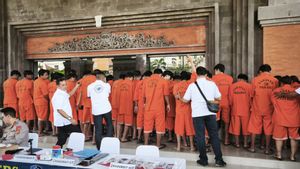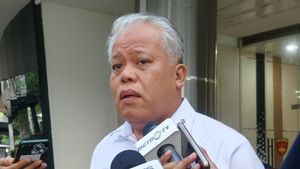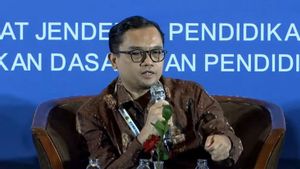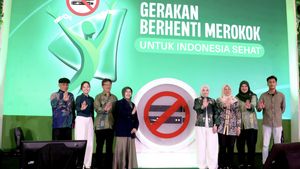JAKARTA - Komjen Agus Andrianto emphasized that he would punish investigators who violated the guidelines in handling cases of the Information and Electronic Transaction Law (ITE).
The statement was made after being officially appointed as Head of the Criminal Investigation Agency (Kabareskrim) by the National Police Chief, General Listyo Sigit Prabowo, at the National Police Headquarters, Wednesday, February 24.
"Those who violate the circular letter of the Chief of Police will definitely be punished," said Agus.
In the handling of the ITE case, said Agus, there will be supervision from the Wasidik (Investigation Supervisor), Professional and Security, and the Police General Supervision Inspectorate.
So, there will be no errors in handling the case. In fact, investigators who carry out the Chief of Police Circular (SE) properly, will get a prize.
"Those who do it properly and get appreciation from the public will also be rewarded", he said.
Agus emphasized that the police will open the widest possible mediation space in handling cases of the ITE Law. Thus, the guideline was issued as a guide for investigators in their attitude.
"This means that the implementation of the ITE Law has opened such opportunities for broadest mediation", he said.
Previously, National Police Chief General Listyo Sigit Prabowo said he would be more selective in prosecuting cases involving human rights and the ITE Law. Later in handling case elements, persuasiveness will be prioritized.
"The law enforcement process takes into account human rights issues. The problem with the ITE law is also a note that in the future we can really carry out law enforcement selectively by prioritizing education, prioritizing persuasiveness, and then we are trying to take rhetorical justice steps", said Listyo Sigit.
The National Police Chief explained that the handling of the two cases, said Listyo Sigit, was to minimize or suppress the occurrence of mutual reporting. Problems related to the ITE Law should have been resolved in a friendly manner.
"This is also to ensure that the use of articles that are considered rubber articles in the ITE Law, which of course have the potential to later be used to report or report to one another, or better known as criminalizing under the ITE Law can be suppressed and controlled in the future", he explained.
The English, Chinese, Japanese, Arabic, and French versions are automatically generated by the AI. So there may still be inaccuracies in translating, please always see Indonesian as our main language. (system supported by DigitalSiber.id)













